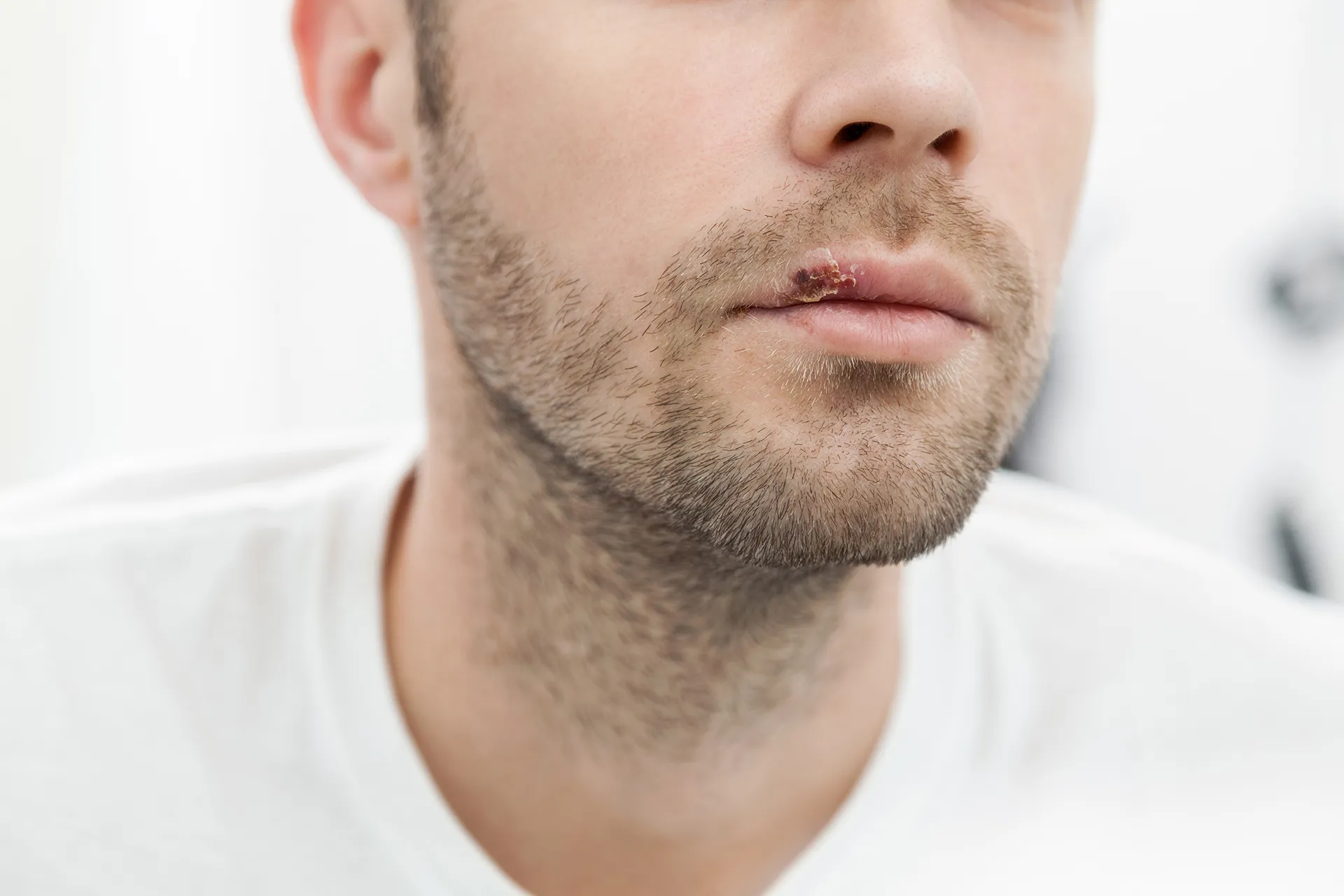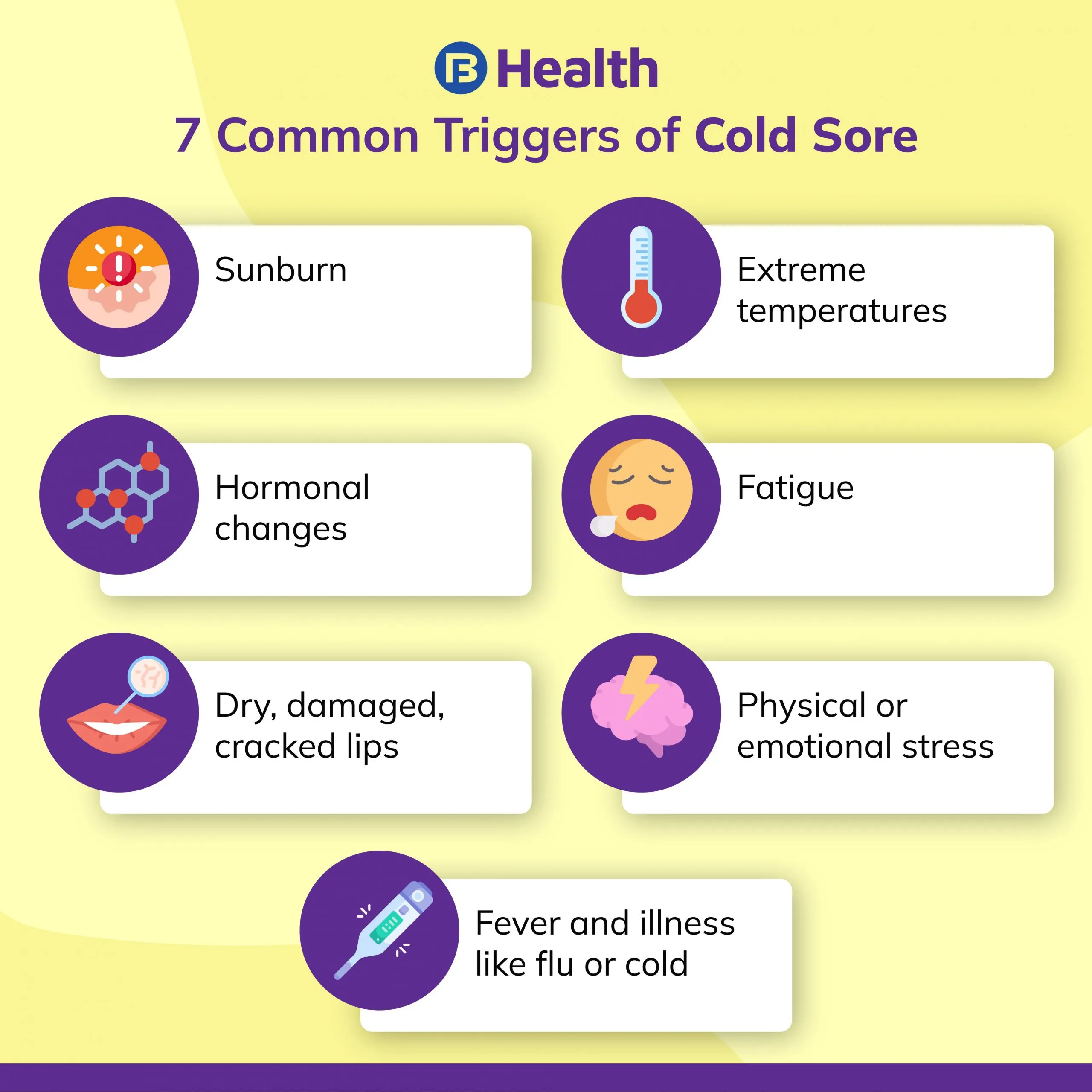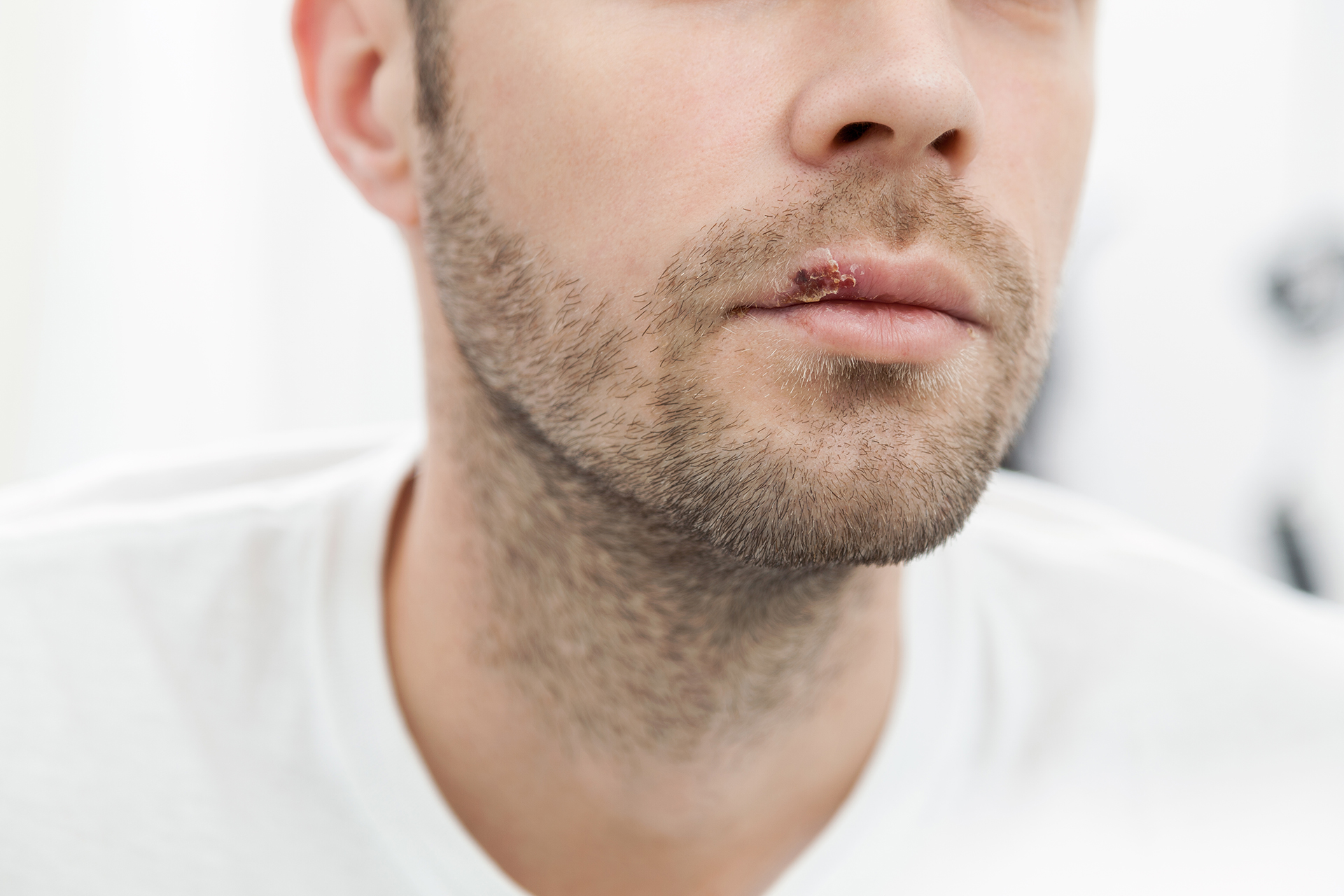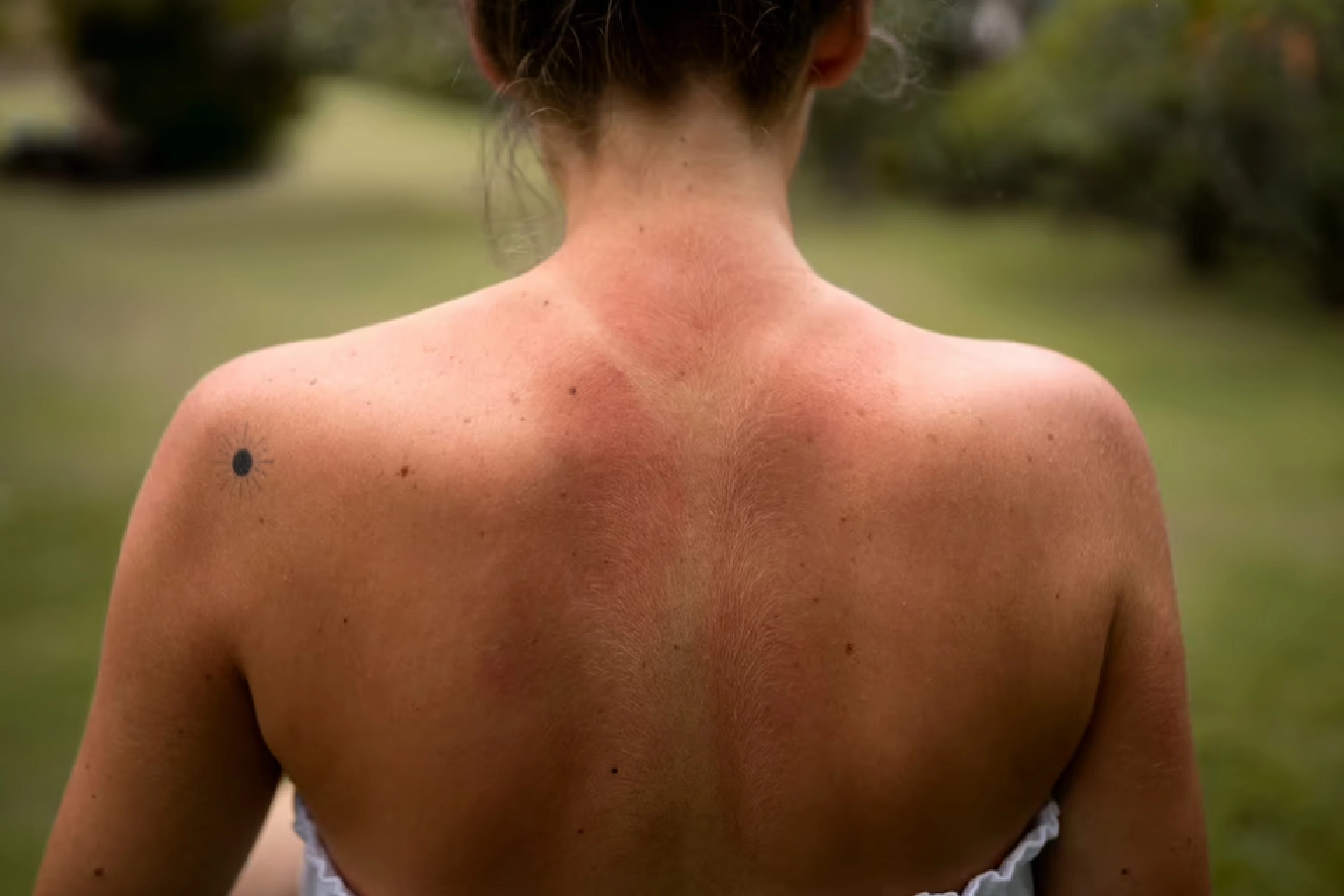Prosthodontics | 5 min read
Cold Sore Treatment and Diagnosis: Important Things To Know
Medically reviewed by
Table of Content
Key Takeaways
- Cold sore diagnosis is done by your doctor on examining the affected area
- Cold sore treatment includes OTC medicines, creams, and home remedies
- For effective results, take cold sore medication after seeing the initial signs
Cold sores are blisters filled with fluid caused by exposure to herpes simplex virus, which is highly contagious and common. Cold sore treatment consists of various options such as oral medication, ointments, and at-home remedies.
A cold sore disappears within 1-2 weeks but getting treatment can help shorten the duration. Cold sore treatment can also help relieve the discomfort and pain caused by them. Cold sore reoccurs because once the virus enters your body, it stays in your system for the rest of your life [1]. It stays dormant and becomes active once you come in contact with the trigger.
If you have previously had a cold sore, diagnosis for recurring cases is easy as you may already know the initial signs. Common signs of cold sores are fever, headache, muscle aches, painful gums, sore throat, and more. You should especially consult a doctor if cold sores do not heal within 2 weeks or if you have a weakened immune system.
Read on to know more about cold sore diagnosis and cold sore treatment.
Cold Sore Diagnosis
Your doctor can usually make a cold sore diagnosis by examining the affected the area. They may also take a swab sample of the cold sore fluid to check for herpes simplex virus. Apart from the swab test, your doctor may also advise a blood test if you have weakened immune system.
Factors that can weaken your immune system include the following:
- Medicines after an organ transplant
- Certain cancers and cancer treatments
- HIV

If you notice signs of a cold sore, start your cold sore treatment at an early stage to help shorten the duration. Consult a doctor immediately if the cold sore shows the following signs:
- Severe symptoms
- Swollen gums
- Delay in healing
- Other symptoms of concern
Cold Sore Treatment
Most outbreaks of cold sore disappear within 2 weeks and don’t require any treatment. But some OTC medication and ointments can help shorten the duration and relieve any pain and discomfort caused by it. The best cold sore treatment is to get necessary cold sore medication and ointment at an early stage.
Common cold sore medication and creams that your doctor may prescribe may include the following:
1. OTC Creams
This cold sore medication can be bought without prescriptions, and you can apply it directly on the affected area. You should use these when you notice the initial signs of itching or tingling. This can help prevent the cold sore from developing.
2. Oral Medicine
This is generally an antiviral medicine prescribed by the doctor that you can take orally.

3. IV Antiviral Medicine
This cold sore treatment is used when other treatment methods are not working. Your doctor may prescribe antiviral medicine administered through an IV. Your doctor will closely monitor you throughout the treatment to notice the effects of the treatment.
Apart from these, you can also try some at-home remedies that can help with cold sore treatment. Common home remedies are given below [2]:
4. Using Creams and Lip Balms
Make sure the cream and lip balm you use has zinc oxide and sunblock. This can help protect you from sun and is also one of the common cold sore on lip treatment methods.
5. Applying a Compress
Use a damp and cold cloth and apply it on the affected area. This can help reduce redness. It can also help promote healing by removing the crusting.
6. Taking Rest and Painkillers
If you also have fever with a painful cold sore, try OTC pain relivers. Creams that contain benzocaine and lidocaine can offer you some relief from the pain.
If you have recurring cold sores, avoid common triggers and take the necessary precautions. Some preventive tips that can help with cold sores are:
- Don’t share personal items like towel, lip balms, or razors
- Avoid any intimate contact with someone who has cold sores
- Thoroughly wash your hands after applying the cream or touching the cold sore
- Wear a sun protective lip balm
- Take proper rest and stay healthy
- Drink fluids and eat soft, cool food
Though complications with cold sore are rare, they can be dangerous. Contact a doctor if you notice any of the signs given below:
- Persistent fever
- Difficulty in swallowing and breathing
- Red and irritated eyes that may or may not have any discharge
Conclusion
Complications are also more likely if you have eczema flare-ups or any other conditions that can weaken your immune system. Book an online dermatologist consultation to get cold sore treatment from the comfort of your home. Along with expert guidance, you can also get tips on how to manage a cold sore if it reoccurs. Talking to skin specialists can also help you with other skin conditions such as warts treatment, sunburn, rashes, and more. This will help you protect your skin and keep it hydrated and radiant! Visit Bajaj Finserv Health for more information.
References
- https://www.nhs.uk/conditions/cold-sores/
- https://www.mayoclinic.org/diseases-conditions/cold-sore/diagnosis-treatment/drc-20371023
Disclaimer
Please note that this article is solely meant for informational purposes and Bajaj Finserv Health Limited (“BFHL”) does not shoulder any responsibility of the views/advice/information expressed/given by the writer/reviewer/originator. This article should not be considered as a substitute for any medical advice, diagnosis or treatment. Always consult with your trusted physician/qualified healthcare professional to evaluate your medical condition. The above article has been reviewed by a qualified doctor and BFHL is not responsible for any damages for any information or services provided by any third party.




